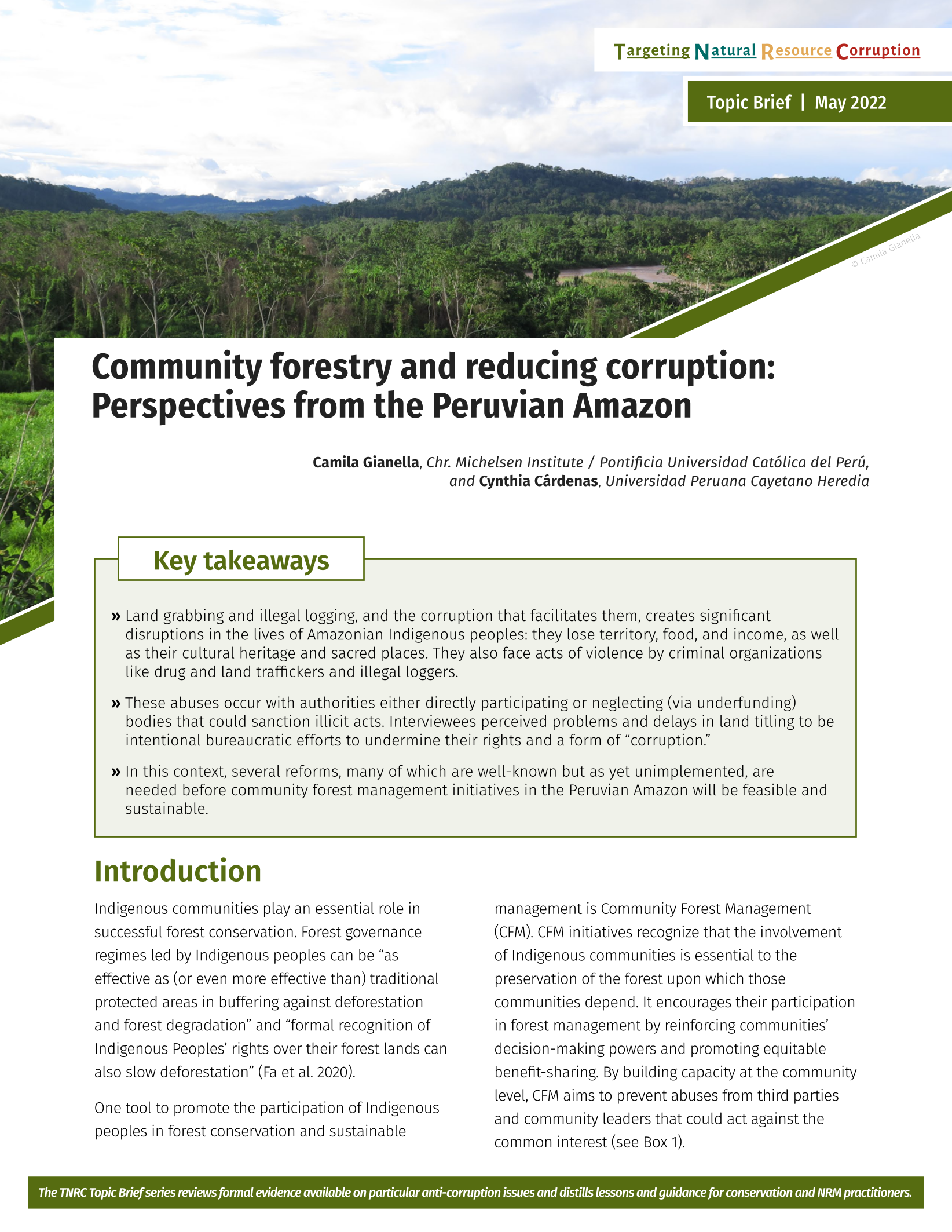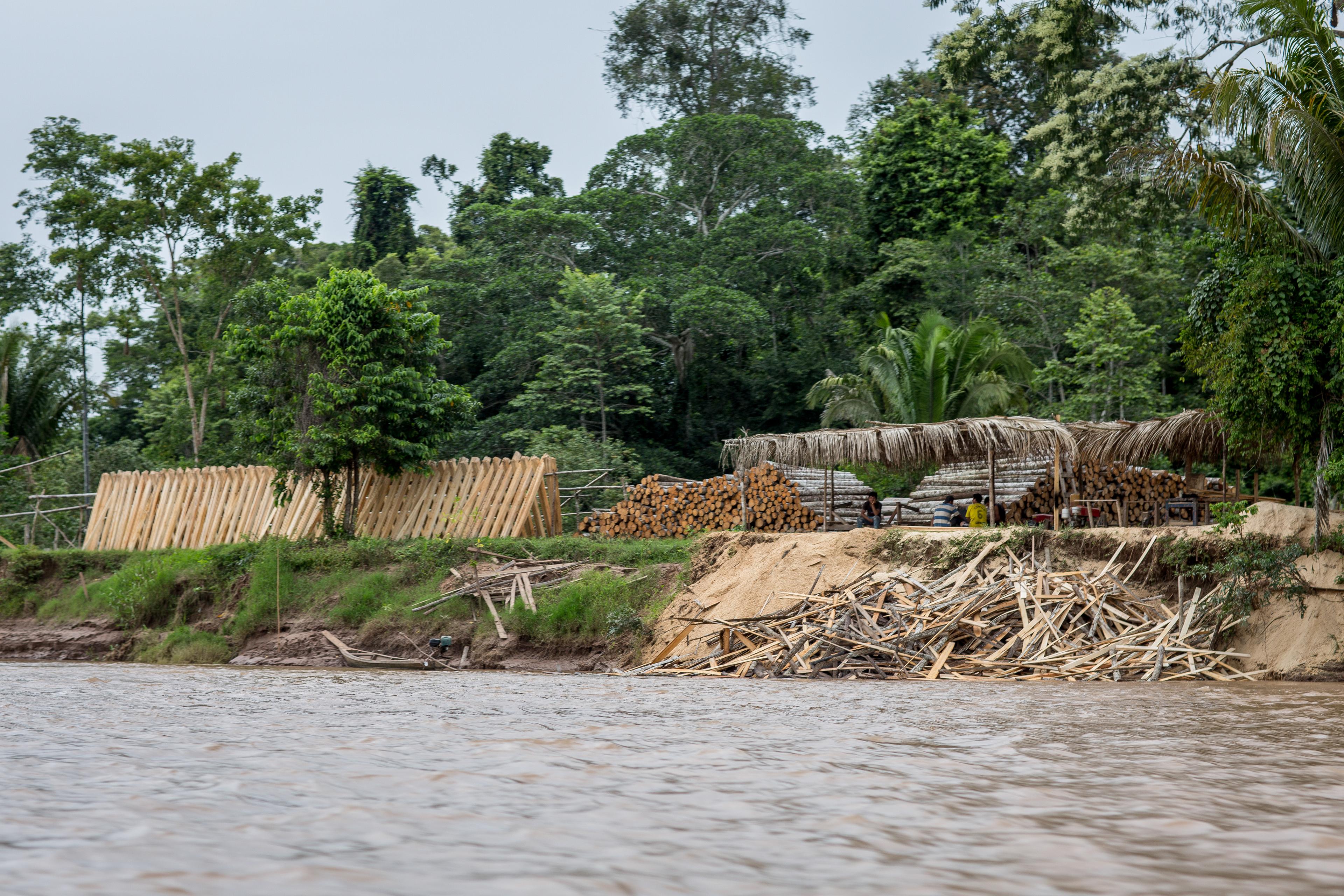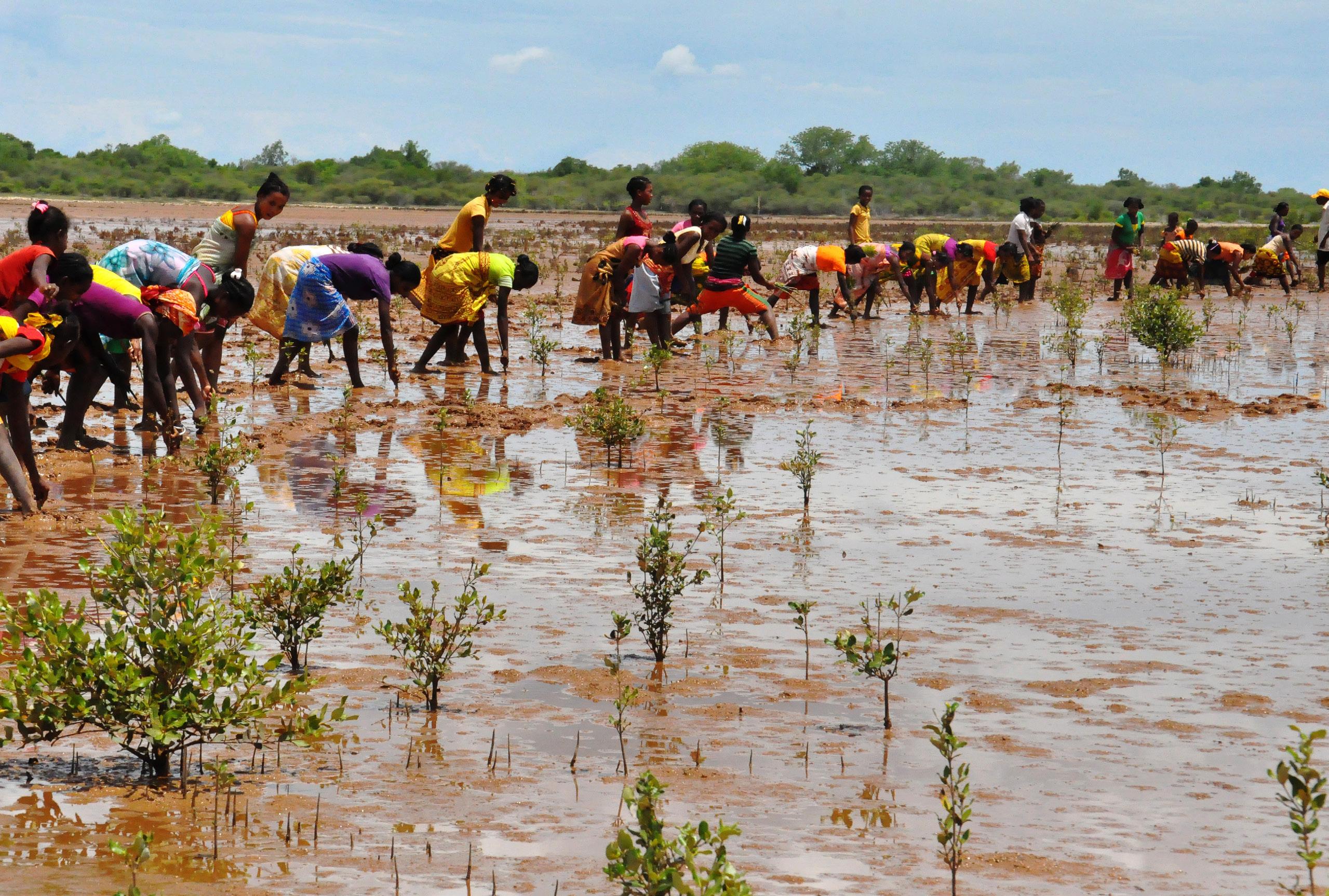Main points
- Land grabbing and illegal logging, and the corruption that facilitates them, creates significant disruptions in the lives of Amazonian Indigenous peoples: they lose territory, food, and income, as well as their cultural heritage and sacred places. They also face acts of violence by criminal organizations like drug and land traffickers and illegal loggers.
- These abuses occur with authorities either directly participating or neglecting (via underfunding) bodies that could sanction illicit acts. Interviewees perceived problems and delays in land titling to be intentional bureaucratic efforts to undermine their rights and a form of “corruption.”
- In this context, several reforms, many of which are well-known but as yet unimplemented, are needed before community forest management initiatives in the Peruvian Amazon will be feasible and sustainable.





